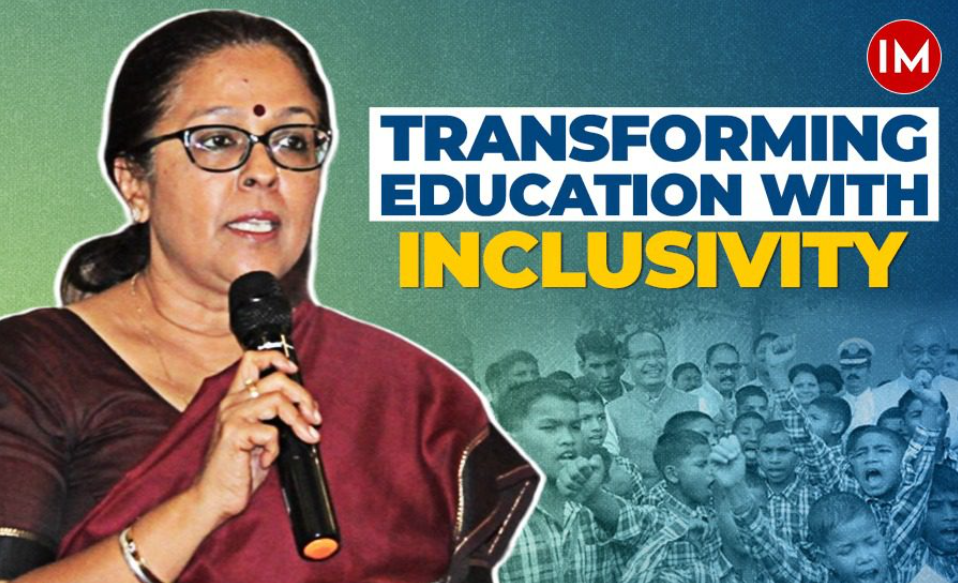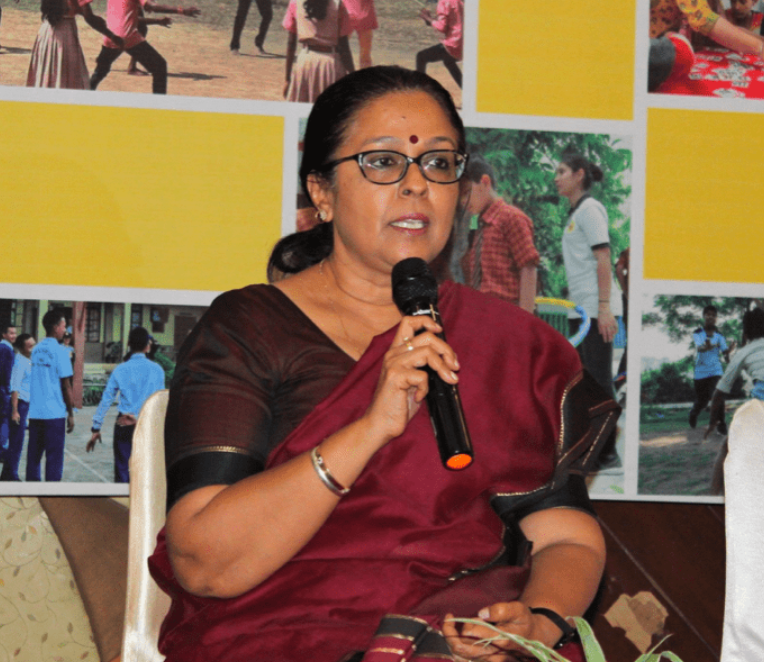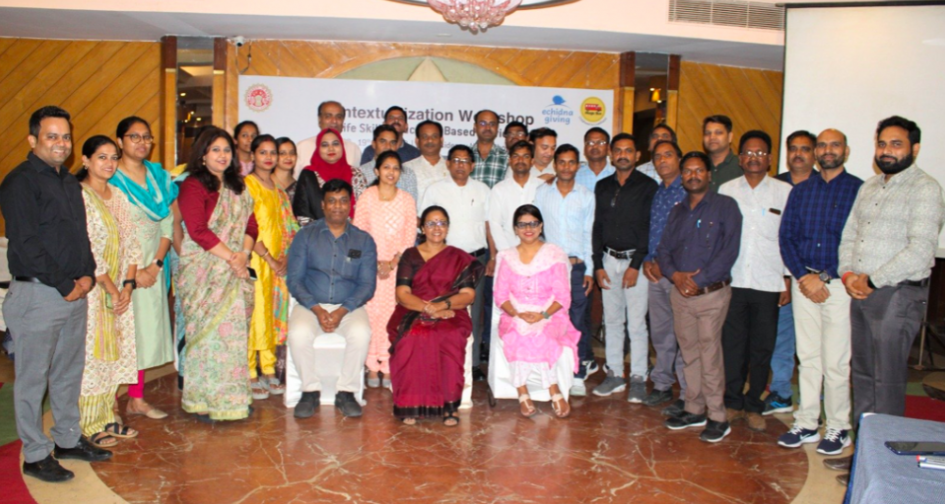IAS officers Pallavi Jain Govill and Krishna Gopal Tiwari led inclusive education initiatives in Madhya Pradesh, addressing longstanding hurdles in tribal development, particularly in education and accessibility. Significant efforts were made to enhance school infrastructure and provide specialized training to teachers, ensuring an inclusive learning environment for disabled tribal students.

For years, the state has been working hard on improving the lives of tribal communities. They’ve made great progress in areas like education, healthcare, farming, and building roads and other infrastructure in these areas. Despite the ongoing efforts made since 2009 through the Right to Education Act, there’s a group of children that has been left behind and often goes unnoticed by most people: children with disabilities from tribal areas.
The Tribal Welfare Department of the MP government, led by IAS officers Pallavi Jain Govil and Krishna Gopal Tiwari, realized the importance of changing their approach towards children with disabilities from tribal areas.
In 2021, they made a structural change by allocating 2% reservation for these children in schools. However, many of these schools were still not equipped to support children with special needs. The main goal became to make these schools inclusive so that more specially-abled children from tribal backgrounds could access quality education.
According to the 2011 Census, India has about 26.8 million people with disabilities, which is around 2.21% of our total population. In Madhya Pradesh (MP), there are 15,51,931 people with disabilities, making up about 5.79% of we the state’s population. MP is one of the top 10 states with a significant number of disabled individuals. Among the disabled in MP, 7.59% are children, totaling 2,74,660 in the 10-19 age group. More than 58,000 of these children live in tribal areas of the state.
In a special conversation with Indian Masterminds, Ms. Govil, who was posted as Principal Secretary then, talked about the steps taken to enhance infrastructure and spread awareness about education among tribal communities. Currently, she serves as the Director-General of Hydrocarbon in the Ministry of Petroleum and Natural Gas, Government of India.
HOW IT STARTED
Before joining the Tribal Affairs Department, Ms. Govil worked in the Health Department. In her role, she oversaw the hiring of doctors and nurses for government hospitals. During this time, she observed that tribals and people with disabilities were not applying for these positions.
The reason was simple: many tribals, especially those with disabilities, lacked access to education. Additionally, their dropout rates from school were higher compared to other children. “When I started working in the Tribal Affairs Department, my objective was clear: to enhance their access to education. Fortunately, I had the support of the then Commissioner of the department who facilitated the process Mr. Sanjeev Singh and Additional Commissioner Mr. Krishna Gopal Tiwari, who, despite being visually impaired, has been a source of inspiration for many”, she said.
THE SURVEY
The department teamed up with an NGO called Aarushi to conduct a survey of all residential schools under its jurisdiction. They created a checklist and formed two to three teams to carry out the survey.
After analyzing the results, a tailored plan was devised for each school and region to address any deficiencies identified. Ms. Govil explains that, according to the building regulations provided by the Government of India, almost every school and public place now has a ramp.
Their survey aimed to determine if residential schools had all the necessary facilities to make them inclusive for all children. Ms. Govil says, “Some schools still lack essential features. While they may have ramps at the entrance, there could be stairs inside. Classrooms might not be on the ground floor, and washrooms may lack handles. Through our survey, we identified areas where these buildings could be improved to make life easier for disabled students.”
Following a meeting with engineers infrastructure improvements were initiated. This began with the enhancement of 12 schools as model institutions, including 10 Eklavya Model Residential Schools and 2 Kanya Shiksha Parisars. The initiative has since expanded to encompass approximately 152 schools across the state.

TRAINING EDUCATORS
The next step was to supply study materials tailored to the students’ needs. This included creating tool-kits and various resources such as digital content, Braille/Audio books, voice-over kits with narrators, light indicators, audible storytelling tablets, and more to facilitate effective communication both in and out of the classroom.
However, the schools required specialized educators to effectively teach these students. As there was a shortage of such trained professionals, the department opted to train existing teachers. Between December 2021 and May 2022, 226 teachers from 155 special schools underwent training in nine batches. This training covered topics such as disability awareness, teaching methods for students with special needs, creating barrier-free environments, and facilitating accessible learning.
RAISING AWARENESS
Ms. Govil, drawing from her extensive experience working in tribal districts, describes the people there as sweet, innocent, and shy. Working with them has always been a pleasure, and she has learned a great deal from their empowered girls and women. However, although awareness about education is gradually increasing, there’s still much work to be done.
Despite school reservations, many seats remained unfilled for years because few children applied, and parents were reluctant to send their children away. The main challenge was to raise awareness and encourage them to participate in entrance exams for admission.
To achieve this, the department conducted information campaigns in Gram Sabhas, regularly promoted on Vanya community radio, and distributed IEC materials such as posters and banners. Additionally, they organized awareness activities through sports to reach a larger tribal audience.

“We invited them to visit the schools for an open house. This allowed them to see first hand and gain confidence that their children would be safe in our care. Additionally, we arranged for them to meet students from their own community who were already enrolled with us,” she told Indian Masterminds.
Many students struggled to clear the examination, prompting the department to seek assistance from the regional resource center of the Ministry of Social Justice & Empowerment to customize the exam. This resulted in the admission of 80 students in 2021, a number that doubled the following year.
Although the 2023 exam was delayed due to elections, Ms. Govil remains hopeful that this year, no seats will remain vacant. Despite her relocation to Delhi as part of a central deputation, the students still fondly remember her and the efforts of her team on their behalf.
Article Credit: indianmasterminds